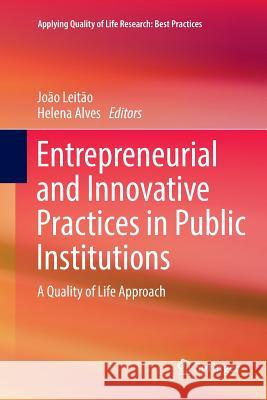Entrepreneurial and Innovative Practices in Public Institutions: A Quality of Life Approach » książka
topmenu
Entrepreneurial and Innovative Practices in Public Institutions: A Quality of Life Approach
ISBN-13: 9783319811956 / Angielski / Miękka / 2018 / 318 str.
Kategorie:
Kategorie BISAC:
Wydawca:
Springer
Seria wydawnicza:
Język:
Angielski
ISBN-13:
9783319811956
Rok wydania:
2018
Wydanie:
Softcover Repri
Ilość stron:
318
Waga:
0.48 kg
Wymiary:
23.39 x 15.6 x 1.8
Oprawa:
Miękka
Wolumenów:
01
Dodatkowe informacje:
Wydanie ilustrowane











